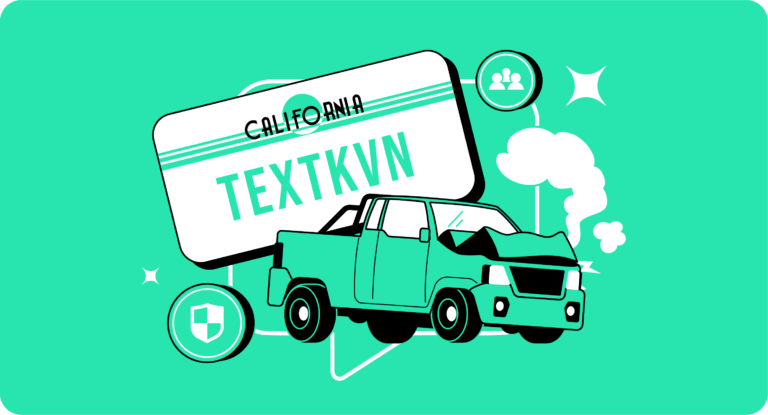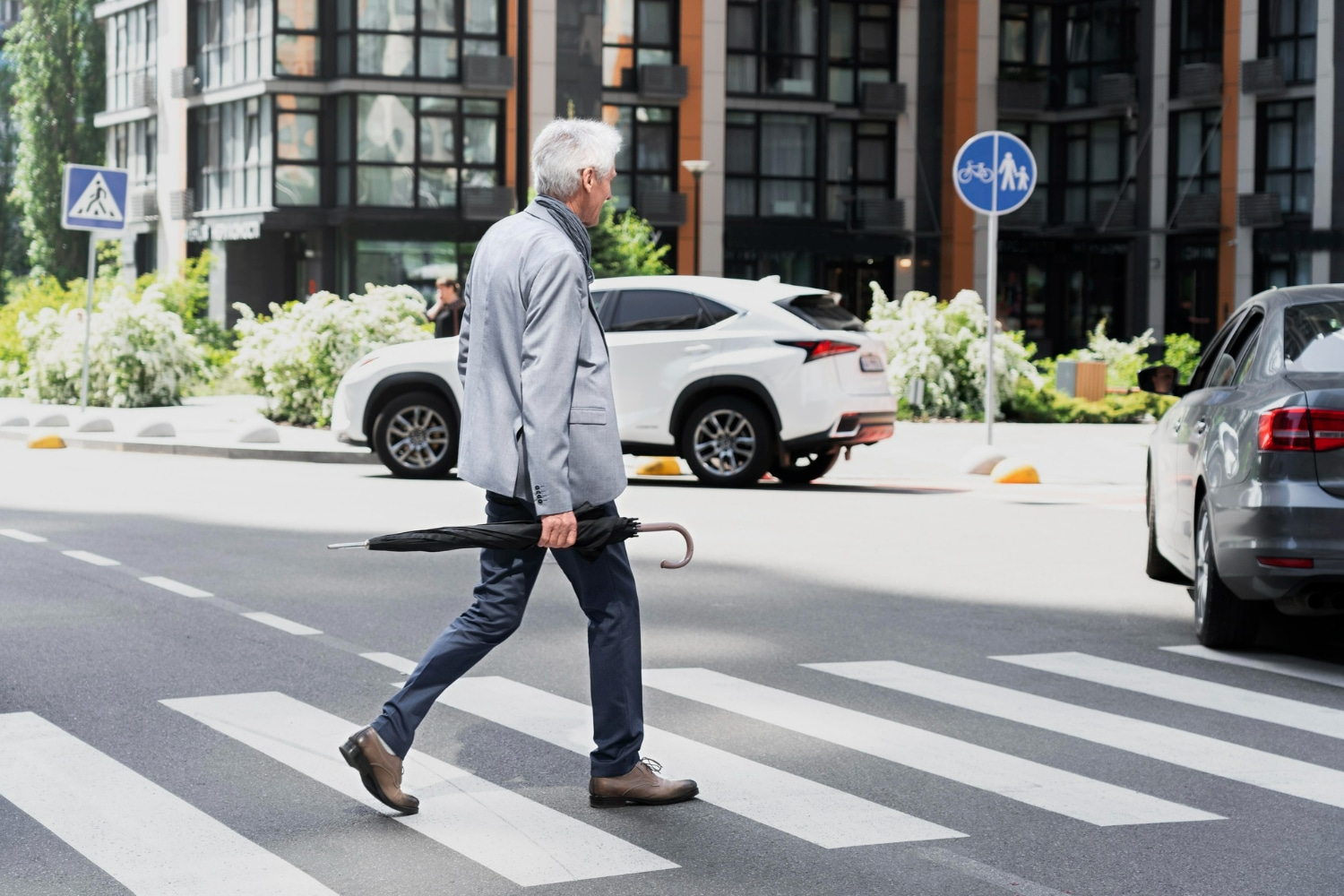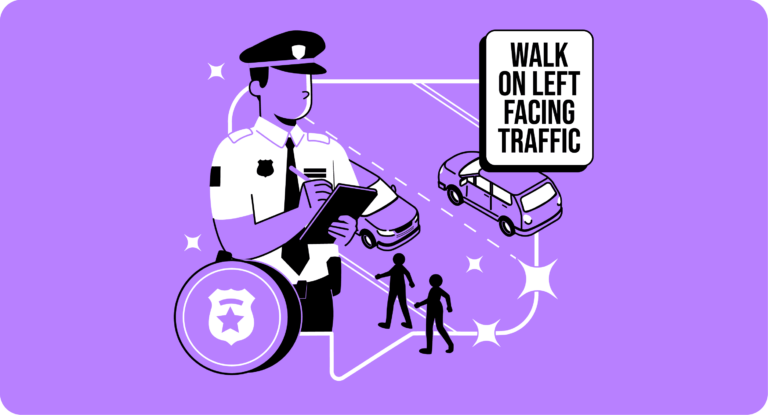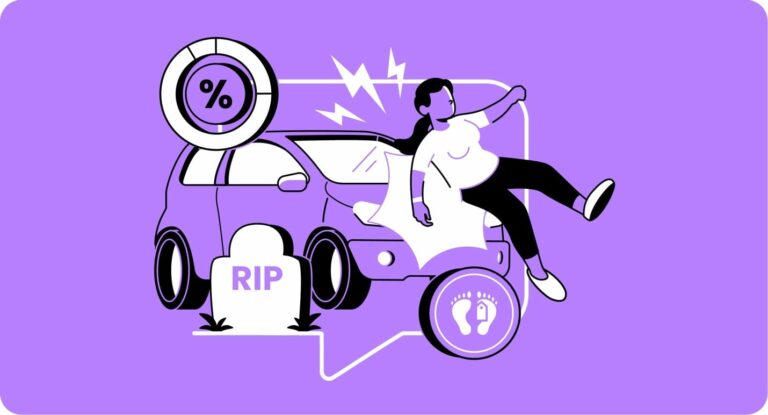Navigating the aftermath of a drunk pedestrian being hit by a car and determining fault requires careful consideration. In this insightful piece, attorney Kevin Crockett from Crockett Law Group delves into the legal aspects, addressing the question of who is at fault. Exploring duty of care, negligence, and shared responsibility sheds light on this critical issue.
Determining Liability and Fault
When an accident involves an intoxicated pedestrian, establishing legal liability requires weighing various factors related to the actions and duties of the parties involved. Key considerations include:
- Contributory negligence overview: The contributory negligence doctrine is often applied in cases involving impaired pedestrians, under which both the pedestrian’s and driver’s negligence contributed to the accident and harm. This allows for assigning partial fault to both parties rather than placing sole blame on one person.
- Driver duty of care and responsibility: Drivers have a heightened duty of care when operating a vehicle on roadways. They must drive sober, follow traffic laws, maintain safe speed for conditions, keep vigilant, and take extra precautions around pedestrians. Their responsibility is higher than pedestrians’ due to controlling heavy machinery.
- Pedestrian duty to exercise reasonable care: While having a lower duty of care than drivers, pedestrians must still exercise reasonable caution to avoid gross negligence. They should not assume drivers will see them or stop in time.
- Situational factors – location, visibility: Environmental factors also influence liability analysis. Darkness, weather, obstructed views, and poor pedestrian visibility increase hazard risks and may lessen driver fault if contributing factors.
- Assessing sobriety and impairment levels: Police administer field sobriety and BAC tests to establish intoxication levels of both parties. Higher impairment level of a party indicates greater negligence on their part.
- Police report and witness statements: The police report provides official details on the accident circumstances. Witness accounts help corroborate what happened from an objective third-party view.
Proving Driver Liability
While the pedestrian shares some liability, proving additional negligent actions by the driver is the key to maximizing compensation. Even if pedestrians are legally drunk, drivers must still exercise reasonable caution when safely possible.
Documenting factors like excessive speed and delayed braking helps establish whether the driver also contributed to the accident despite the pedestrian’s impairment.
Evidence of speeding, distraction, recklessness
Evidence like skid marks, distance traveled, and crash severity can indicate whether or not the driver was speeding, distracted by a cell phone, or acting aggressively. Any of these things can bring added hazards to pedestrians. Demonstrating these improper actions makes driver liability stronger.
Demonstrating pedestrian right of way
If the pedestrian was within a legal crosswalk or had right of way when struck, it focuses fault back on the driver who failed to yield appropriately.
Highlighting dangerous conditions posed by driver
Evidence of inadequate headlights, a blocked windshield, malfunctioning brakes, or other vehicle issues increases the likelihood of the driver being held liable for pedestrian accidents.
Forensic and accident reconstruction
Forensic analysis and accident reconstruction can accurately determine key details such as the vehicle’s speed, visibility at the time, and the pedestrian’s location when hit. This offers precise information about the driver’s actions.
By presenting persuasive evidence of driver decisions and vehicle conditions posing amplified dangers to pedestrians beyond typical risks, injured parties can maximize driver liability and subsequent compensation for damages.
Proving Pedestrian Liability
While a driver bears significant responsibility, evidence establishing negligence by the pedestrian can reduce their compensation. Important factors include proof of impairment, location, and lack of visibility precautions taken.
Evidence of impairment and negligence
Police toxicology reports, witness statements about erratic pedestrian behavior, and medical records indicating extreme intoxication demonstrate negligence. Evidence linking substance use to the pedestrian’s choices establishes greater liability on their part.
Documentation of location outside crosswalk
Police diagrams, photos, and reports confirming the pedestrian was struck while outside a legal crosswalk and jaywalking add liability, as pedestrians must yield to vehicles outside designated areas.
Lack of reflective gear at night
If the collision occurred at night, evidence showing the pedestrian wore dark, non-reflective clothing can shift more fault back to them. Visibility issues created by poor pedestrian precautions increase their contributory negligence.
Presenting evidence of impairment levels, location, and lack of visibility precautions taken by the pedestrian provides a basis for reducing their settlement value by demonstrating heightened comparative negligence. However, drivers still maintain higher responsibility for vigilance.
Insurance Claims and Legal Action
After a drunk pedestrian accident, injured parties can seek compensation through insurance claims or civil lawsuits. These avenues have distinct processes and benefits.
Overview of insurance claims process
Those harmed may file a claim against the driver’s auto liability policy first. Insurers investigate faults and may make a settlement offer. However, offers often undervalue pedestrians’ losses. Complex contributory negligence calculations also disadvantage claimants negotiating alone.
Retaining legal counsel benefits
Experienced personal injury lawyers know how to maximize settlements by demonstrating full scope of harms and arguing against unfair reductions due to impairment. Attorneys deal directly with insurers, relieving clients of burdensome negotiations.
Settlement outcomes and negotiations
Outcomes vary based on state laws, damages, and conduct of parties. Typical settlements for serious drunk pedestrian accidents involving clear driver negligence range from $100,000-$500,000. Counsel negotiates strategically, backed by demand packages substantiating losses.
Steps in litigation process
If unsatisfied with settlement offers, lawsuits commence by filing a complaint. Litigation allows fuller investigation into circumstances supporting negligence claims against drivers. Skilled lawyers handle the demanding legal process of discovery, motions, trial or settlement.
Retaining legal counsel early on provides critical guidance during insurance claims, negotiations, and potential litigation. Experts in drunk pedestrian accidents, attorneys maximize recoveries for injured pedestrians and their families.
Seeking Damages and Compensation
When pedestrians suffer severe injuries from accidents involving negligent drivers, they may obtain full compensation for their harms through insurance claims or civil lawsuits.
Recoverable damages account for both economic losses and non-economic suffering. Award amounts take into comparative negligence laws that allow reducing payouts based on the pedestrian’s impairment levels.
Types of damages
- Medical expenses to treat injuries sustained immediately and over long recovery periods, including hospitalization, surgeries, physical therapy, rehabilitation services, prescription medications, assistive devices
- Lost income and diminished earning capacity calculated from time missed from work during initial recovery through any permanent disability preventing returning to occupation
- Subjective pain and suffering damages based on the nature and extent of injuries influencing length and quality of life
Comparable case settlements and awards
- Past legal case outcomes involving similar circumstances provide reasonable estimates for current case settlement values based on precedent
- Jury verdicts establishing negligence and assigning damages create benchmarks for cases taken to trial
Accounting for contributory negligence
- Laws allow reducing pedestrians’ payout by percentages commensurate with their degree of impairment and associated negligence
- The precise deduction amounts depend on state statutes and the specific details of each case
Obtaining experienced legal counsel maximizes recoveries by proving exaggerated driver negligence, fully documenting all categories of damages, and skillfully negotiating impairment deduction levels.
FAQs
Who is usually at fault when a drunk pedestrian is hit by a car?
Both the pedestrian and driver may share partial fault under contributory negligence laws that consider both parties’ actions.
What factors determine liability when a drunk pedestrian is hit?
Key factors include sobriety levels, location, visibility, driver actions, pedestrian negligence, circumstantial hazards, police reports, and more.
Does a drunk pedestrian share fault if hit by a car?
Yes, a drunk pedestrian likely shares partial fault due to negligence caused by impairment, but drivers maintain higher responsibility.
Can an intoxicated pedestrian still recover damages if hit by a vehicle?
Yes, they can recover compensatory damages reduced proportionately by percentages of their assigned fault.
Does a drunk pedestrian have any legal recourse if hit by a car?
Yes, they retain the right to take legal action against negligent drivers and seek damages through insurance claims or personal injury lawsuits.
What are common injuries when a drunk pedestrian is hit by a car?
Frequent severe injuries include head/brain trauma, spinal damage, broken bones, abrasions, and internal organ damage.
Does auto insurance cover accidents with drunk pedestrians?
Yes, liability policies cover drivers who strike pedestrians, though payouts account for pedestrian negligence.
Should I get a lawyer if an impaired pedestrian I hit is suing?
Yes, retaining legal counsel is vital to build your defense by investigating circumstances and arguing comparative negligence.
What damages can a drunk pedestrian claim if hit by me?
They may claim medical expenses, lost income, pain and suffering, and other accident-related costs.
How can I reduce liability if I hit a drunk pedestrian?
Do not flee the scene, call 911, cooperate fully with police, and document all circumstances supporting comparative pedestrian negligence.
Seek Justice After an Accident With an Intoxicated Pedestrian
When an impaired pedestrian wanders onto the road and is struck by your vehicle, the legal and financial implications can be overwhelming. With complex negligence calculations, insurance claim hurdles, and potential litigation, you need compassionate legal guidance.
Don’t navigate the aftermath alone. Personal injury attorney Kevin Crockett can offer sound advice and vigorous support. Contact us at (800) 900-9393 or through our secure online form for a free consultation.
We know this difficult process, and your peace of mind is our priority.










